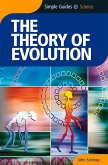Is it possible to explain and predict the development of living things? What is development? Articulate answers to these seemingly innocuous questions are far from straightforward. To date, no systematic, targeted effort has been made to construct a unifying theory of development. This novel work offers a unique exploration of the foundations of ontogeny by asking how the development of living things should be understood. It explores the key concepts of
developmental biology, asks whether general principles of development can be discovered, and examines the role of models and theories.
The two editors (one a biologist with long interest in the theoretical aspects of his discipline, the other a philosopher of science who has mainly worked on biological systems) have assembled a team of leading contributors who are representative of the scientific and philosophical community within which a diversity of thoughts are growing, and out of which a theory of development may eventually emerge. They analyse a wealth of approaches to concepts, models and theories of development, such as
gene regulatory networks, accounts based on systems biology and on physics of soft matter, the different articulations of evolution and development, symbiont-induced development, as well as the widely discussed concepts of positional information and morphogenetic field, the idea of a 'programme' of
development and its critiques, and the long-standing opposition between preformationist and epigenetic conceptions of development.
Towards a Theory of Development is primarily aimed at students and researchers in the fields of 'evo-devo', developmental biology, theoretical biology, systems biology, biophysics, and the philosophy of science.
Hinweis: Dieser Artikel kann nur an eine deutsche Lieferadresse ausgeliefert werden.
developmental biology, asks whether general principles of development can be discovered, and examines the role of models and theories.
The two editors (one a biologist with long interest in the theoretical aspects of his discipline, the other a philosopher of science who has mainly worked on biological systems) have assembled a team of leading contributors who are representative of the scientific and philosophical community within which a diversity of thoughts are growing, and out of which a theory of development may eventually emerge. They analyse a wealth of approaches to concepts, models and theories of development, such as
gene regulatory networks, accounts based on systems biology and on physics of soft matter, the different articulations of evolution and development, symbiont-induced development, as well as the widely discussed concepts of positional information and morphogenetic field, the idea of a 'programme' of
development and its critiques, and the long-standing opposition between preformationist and epigenetic conceptions of development.
Towards a Theory of Development is primarily aimed at students and researchers in the fields of 'evo-devo', developmental biology, theoretical biology, systems biology, biophysics, and the philosophy of science.
Hinweis: Dieser Artikel kann nur an eine deutsche Lieferadresse ausgeliefert werden.

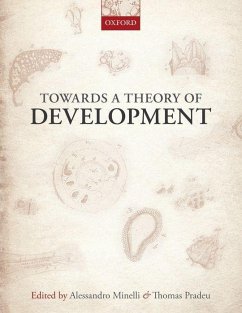
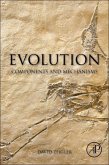
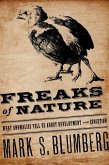
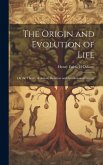

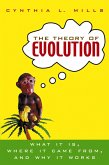
![Darwin and After Darwin [microform]: an Exposition of the Darwinian Theory and a Discussion of Post-Darwinian Questions Darwin and After Darwin [microform]: an Exposition of the Darwinian Theory and a Discussion of Post-Darwinian Questions](https://bilder.buecher.de/produkte/71/71676/71676479m.jpg)
